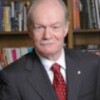“Fertilizer maker Agrium, Inc. (AGU) has dropped from its peak of $98 in February 2011. That’s mainly due to fears that the global economy is entering another recession. Still, Agrium’s long-term outlook remains strong. That’s largely because rising prosperity in developing regions, such as Asia and Latin America, continues to spur demand for higher-quality food. In response, farmers are applying more fertilizer to increase their crop yields. As well, rising use of corn for fuel additives, such as ethanol, should continue to support fertilizer prices.
“Another plus for Agrium is that it uses natural gas to make its products. New shale gas discoveries in North America have increased gas supply and depressed prices. Agrium’s exposure to fertilizer prices makes it more volatile than other stocks we recommend, but we feel its growth prospects and its expanding retail business offset this risk. Agrium makes fertilizers from natural gas at 14 plants in North America and Argentina. The company is based in Calgary, so it benefits from its proximity to western Canadian gas producers. As a result, it tends to pay less for its gas than its main competitors in the U.S. Agrium also makes other fertilizers, such as potash and phosphate, from mines in Ontario, Alberta, Saskatchewan and Idaho.
“As well, the company owns stores that sell fertilizer, seeds and other agricultural products to farmers. It has been expanding this business in the past few years, mainly through acquisitions. In May 2008, it bought UAP Holding Corp. for $2.7 billion. That doubled its retail division to over 900 stores in North and South America (all amounts except share price and market cap in U.S. dollars). In December 2010, it paid $1.2 billion for AWB Ltd., which operates 340 farm-supply stores in Australia. AWB gives Agrium a base from which to expand further in the Asia-Pacific region. Agrium later sold AWB’s grain-marketing and trading businesses for $694 million.
Shift to retail cuts Agrium’s risk
“Agrium now gets 70% of its revenue and a third of its earnings from its retail operations. Steady sales from its stores make it less reliant on unpredictable bulk fertilizer sales. Thanks mainly to rising fertilizer prices, Agrium’s sales rose 139.2%, from $4.2 billion in 2006 to $10.0 billion in 2008. The recession pushed down fertilizer demand in 2009, so Agrium’s sales fell 9.0%, to $9.1 billion. However, sales rebounded by 15.2%, to $10.5 billion, in 2010.
“Earnings shot up by 917.1%, from $0.82 a share (or a total of $109.1 million) in 2006 to $8.34 a share (or $1.3 billion) in 2008. Earnings then fell 72.1%, to $2.33 a share (or $366.0 million), in 2009, but rose 98.7%, to $4.63 a share (or $731.0 million), in 2010. Cash flow per share jumped from $2.09 in 2006 to $9.81 in 2008. Cash flow then dropped 60.6%, to $3.87 a share, in 2009, but gained 74.2%, to $6.74 a share, in 2010.
“The company is also using acquisitions to expand its fertilizer business. For example, it recently paid an undisclosed sum for Nebraska-based Tetra Micronutrients, a private company whose additives make fertilizers and plant nutrients more effective, particularly in poor-quality soil. ...
New projects have long-term potential
“Acquisitions are just one part of Agrium’s growth strategy; it is also investing in a number of new projects. For example, the company is now expanding its main potash mine in Vanscoy, Saskatchewan. That will increase the mine’s production by 37% by 2017. As well, Agrium aims to triple the capacity of its 26%-owned nitrogen fertilizer plant in Egypt by mid-2012. The Egyptian government, which owns the remaining 74% of the plant, is paying the full $1.8-billion cost of this project. This expansion will help Agrium sell more fertilizer in Europe. The recent political turmoil in Egypt increases the possibility that Agrium will have to write down this investment. However, this business supplied just $17 million, or 2%, of its 2010 pre-tax earnings, so the impact of any writedown would be small.
“The company’s strong balance sheet will let it keep investing in new projects. On June 30, 2011, Agrium held cash and investments of $966 million, or $6.11 a share. As well, its long-term debt of $2.1 billion is a low 15% of its market cap.
“Agrium may use some its cash to raise its $0.11 U.S. per-share dividend, which yields just 0.2%. It could also resume share buybacks, which it stopped after it spent $35 million on buybacks in 2008.
“The stock will likely remain volatile. Still, it trades at just 8.2 times the $9.14 U.S. per share that Agrium will likely earn in 2011. It also trades at a low 6.3 times its projected cash flow of $12.00 U.S. per share.
“Agrium is a buy.”
Patrick McKeough, The Successful Investor, September, 2011
